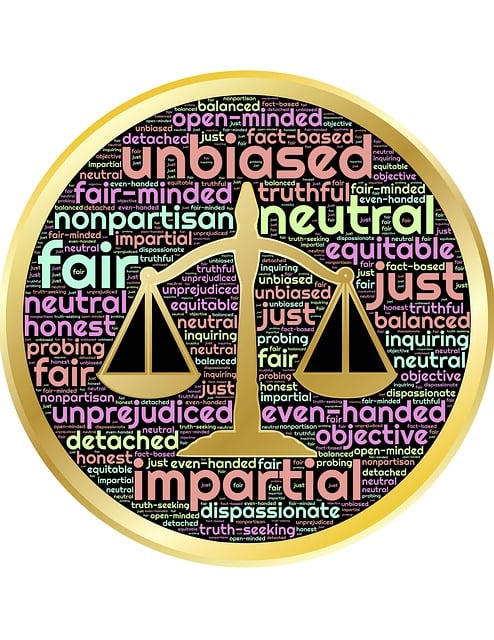Environmental crime trials, focusing on compensation in consumer protection lawsuits, are essential for prosecuting polluters and deforesters. These cases enforce regulations, send strong messages about ecological harm's consequences, offer learning opportunities for prevention, and contribute to a sustainable future through deterrence and justice. By seeking compensation for affected individuals and communities, these trials promote environmental justice and encourage businesses to adopt sustainable practices.
“Environmental Crime Trials: A Quest for Justice and Accountability explores the intricate world of legal battles aimed at holding polluters responsible. This article delves into the unique perspective of understanding these trials through a lens of environmental law, specifically focusing on consumer protection lawsuits as powerful tools for compensation. We analyze strategies to ensure polluters face consequences, highlighting the significant impact on environmental justice cases. By examining these aspects, we shed light on the evolving landscape of holding corporations accountable for their ecological footprint.”
- Understanding Environmental Crime Trials: A Legal Perspective
- Consumer Protection Lawsuits: A Focus on Compensation
- Strategies for Holding Polluters Accountable
- The Impact and Future of Environmental Justice Cases
Understanding Environmental Crime Trials: A Legal Perspective

Environmental crime trials are a critical aspect of holding perpetrators accountable for damaging our planet. These legal proceedings focus on crimes like pollution, deforestation, and other acts that violate environmental protection laws. From a legal perspective, they serve as a powerful tool to enforce regulations and send a strong message about the consequences of ecological harm. One key element often at play is compensation in consumer protection lawsuits, where individuals or communities affected by environmental degradation seek justice and reimbursement for damages.
Across the country, general criminal defense strategies may vary, but the goal remains the same: to protect both the law and those it serves. Philanthropic and political communities also play a role in these trials, offering support and resources to ensure that environmental crimes are not just punished but also used as learning opportunities for prevention. This holistic approach aims to create a sustainable future by addressing past ecological offenses through rigorous legal processes.
Consumer Protection Lawsuits: A Focus on Compensation

In environmental crime trials, one significant aspect that often receives attention is the role of consumer protection lawsuits. These legal actions aim to address the economic harm caused by businesses engaging in illicit environmental practices, with a particular focus on compensation for affected consumers. When companies violate environmental regulations, it can result in contaminants being released into the ecosystem, affecting local communities and even entering the food chain. This has severe implications for public health and safety.
Consumer protection lawsuits play a crucial role in holding these companies accountable. They seek to compensate individuals who have suffered financial losses due to environmental misconduct, ensuring that businesses take responsibility for their actions. The pursuit of compensation is not only a measure of justice but also serves as a powerful deterrent for potential white-collar offenders. These cases involve complex legal strategies, requiring skilled attorneys to navigate the intricate web of corporate and individual liability, ultimately safeguarding the rights of those impacted by such crimes.
Strategies for Holding Polluters Accountable

Ensuring accountability for environmental criminals is paramount to deterring future offenses. One effective strategy involves utilizing consumer protection lawsuits, where individuals or communities affected by pollution can seek compensation. This approach leverages existing legal frameworks to hold polluters responsible for the harm caused. By focusing on consumer protection laws, affected parties can access remedies and send a strong message that environmental degradation will no longer be tolerated.
The process begins with comprehensive investigations at all stages of the investigative and enforcement process. This includes gathering evidence, interviewing witnesses, and analyzing data to build robust cases against polluters, whether they are white-collar or economic criminals. Once established, these cases can lead to substantial financial settlements or judgments, which not only compensate victims but also act as a powerful deterrent for respective businesses operating in environmentally sensitive sectors.
The Impact and Future of Environmental Justice Cases

The impact of Environmental Justice cases is profound, not just legally but socially and economically. These trials serve as a powerful tool to hold individuals and corporations accountable for their role in environmental degradation, ensuring that those harmed by pollution or ecological destruction receive compensation in Consumer Protection Lawsuits. By achieving extraordinary results, they send a strong message that environmental crimes will no longer be tolerated, fostering a sense of justice and accountability.
Looking ahead, the future of Environmental Justice cases promises significant shifts in how we address corporate environmental misconduct. As successful trials continue to unfold, businesses may find themselves more incentivized to adopt sustainable practices to avoid indictment and the potential for massive settlements or complete dismissal of all charges. This evolving landscape could lead to a more sustainable and equitable society, where environmental protection is not just a legal obligation but also a cornerstone of corporate responsibility.
Environmental crime trials play a pivotal role in holding polluters accountable and ensuring justice. By examining legal strategies, consumer protection lawsuits, and the impact on environmental justice, it’s clear that these cases are transforming the way we address ecological harm. The pursuit of compensation through consumer protection laws has proven effective in holding corporations accountable for their actions. Looking ahead, the future of environmental justice cases promises to revolutionize how communities and businesses navigate ecological challenges, ensuring a more sustainable and equitable world.






